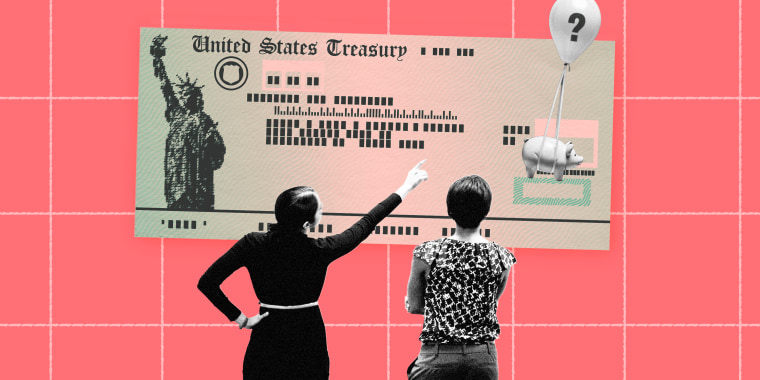Millions of Americans received their second Economic Impact Payment, or stimulus check, from the federal government last week. This time, the payments could be up to $600 per person or $1200 for married couples filing jointly with an additional $600 for any dependents under the age of 16.
According to the IRS, payments started going out on Dec. 29 and will continue to be distributed in the coming weeks. Not sure if you qualify for a payment? The same rules from March apply; in other words, your most recent tax return was your application. If you made up to $75,00 for single filers or $150,000 for married couples filing jointly in 2019, you should be eligible for a payment, according to IRS.gov.
If you are set up for direct deposit for your tax refund, you should be getting your payment to that bank account; otherwise, keep an eye out for a check or debit card in the mail in the coming weeks. You can always track your stimulus money via the Get My Payment tool. And don’t forget: This payment is like getting an advance on your tax refund. You won’t need to pay it back next year.
But once you get that payment, what should you do with it? Here’s what you need to know.
If you’re struggling with the bare necessities ...
This pandemic has taken a sledgehammer to the financial stability of millions of people, and there is no shame in needing or asking for help. If you’ve been behind on your rent or can’t afford groceries or other essential items, of course start there.
“The most important and distressing thing we learned about our social safety net over the last year is that it’s filled with holes, and millions of Americans fell through them,” said Stephanie Ruhle, NBC News senior business correspondent. “If you have rent relief, then wait on it, but if your utilities will be shut off, pay for that. If you drive to work, make sure you save money for gas. Make a list of what you literally need to get through the day.”
If you’re in debt ...
Do you have the essentials covered, but are still paying down debt? The type of debt you have and the interest you’re paying on it should factor in when considering whether or not to pay a lump sum now. If you are paying off high-interest debt, like a credit card, consider paying that first.
“Prioritizing paying down credit card debt, frankly, even before you work on your savings, and then working through the other types of high interest rate debt one by one is the way that's going to save you the most money,” said Sallie Krawcheck, CEO and co-founder of Ellevest.
If you have student loan debt, remember that federal student loan payments are on hold through Jan. 31, and there’s still a chance that student loans could be forgiven by President-Elect Joe Biden. “I would not pay extra (right now),” said Robert Farrington, founder of The College Investor. “I would assess when we learn if this will come to fruition or what that looks like.”
If you're still bringing in your regular paycheck ...
Plenty of Americans have been able to save a lot during this crisis. The personal savings rate is almost double what it was a year ago, according to the Federal Reserve of St. Louis. If that payment is a little bonus income for you, here’s how you should manage it.
If you don’t already have an emergency fund, now is the time to start one. An emergency fund is money you set aside should you lose your job or have another unexpected expense that you absolutely need to cover. You should plan to have three to six months of your basic living expenses set aside in a high-yield savings account in case of emergency.
If your emergency fund is taken care of, it’s up to you whether you want to save, invest or donate it. If you’ve been cutting back on your savings and investing this year, you can take this opportunity to recoup lost ground. Low-fee ETFs and index funds are a lower risk way to help your money grow.
If you want to donate your check, there are lots of organizations that have been struggling this year to either keep up with increased demand or deal with fewer donations and fundraisers that usual. Initiatives like #ShareMyCheck can help you find mutual aid or grassroots organizations in your community, and when in doubt, you can give a little extra to the causes you normally donate to but haven’t yet because of the pandemic.
“Look within and give, if we're able to, but really do it in a way that makes sense for us,” Krawcheck said. “I really do think it aligns with your own values.”


